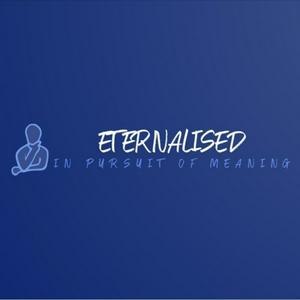The Psychology of God's Dark Side
In 1952, at the age of seventy-six, Carl Jung wrote Answer to Job in a single burst of energy and with strong emotion. He completed it while ill, following a high fever, and upon finishing, he felt well again. The book explores the nature of God, particularly what Jung perceived as God’s dark side, a theme that preoccupied him throughout his life. In it, the theology first explored in the Red Book—the progressive incarnation of God, and the replacement of the one-sided Christian God with one that encompasses evil within it—found its clearest expression. This makes Answer to Job one of Jung’s most controversial works. Jung wrote in a letter that the book, “released an avalanche of prejudice, misunderstanding, and above all, atrocious stupidity.”The fundamental idea in Answer to Job is that the pair of opposites is united in the image of Yahweh. God is not divided but is an antinomy—a totality of inner opposites. This paradox is the essential condition for His omniscience and omnipotence. Love and Fear, though seemingly irreconcilable, coexist at the heart of the divine.The story of Job follows a righteous man whose faith is tested by Satan with God’s permission. Job loses his wealth, children, health, and the support of his friends, who insist he must be guilty. His cries for justice go unheard, so that Satan’s cruel wager can proceed undisturbed. God allows the innocent to suffer. Still, Job is certain that somewhere within God, justice must exist. This paradox leads him to expect, within God, a helper or an “advocate” against God.Jung flips the traditional understanding of Christ’s work of redemption: it is not an atonement for humanity’s sin against God, but a reparation for a wrong done by God to man.“God has a terrible double aspect: a sea of grace is met by a seething lake of fire, and the light of love glows with a fierce dark heat of which it is said, “ardet non lucet”—it burns but gives no light. That is the eternal, as distinct from the temporal, gospel: one can love God but must fear him.”When Jung was once asked how he could live with the knowledge he had recorded in Answer to Job, he replied, “I live in my deepest hell, and from there I cannot fall any further.”📨 Subscribe to newsletter⭐ Support on Patreon🛒 Official merch━━━━━━━━━━━━━📚 Recommended Reading▶ Answer to Job: (From Vol. 11 of the Collected Works of C. G. Jung)https://amzn.to/44PUN5M🎧 Prefer Audiobooks? Get a 30-day Audible Plus FREE trial: ▶ https://amzn.to/332zPzNAs an Amazon Associate, I earn a small commission from qualifying purchases at no additional cost to you. ━━━━━━━━━━━━━⌛ Timestamps0:00 Introduction4:28 Religion as a Psychic Truth5:31 Job: The Oldest Book of the Bible 8:07 Union of Opposites in God9:54 Abraxas10:55 The Divine Drama: Yahweh and Job15:57 The Creature Surpasses The Creator16:54 Yahweh and Sophia18:09 Abel: Foreshadowing the God-Man 18:58 God Becomes Man21:13 Christ and the Hero’s Myth22:01 Answer to Job22:04 Christ as Archetype of the Self24:31 The Role of Satan27:14 The Role of the Holy Spirit (Paraclete)29:01 Conflict of Opposites and Redemption30:28 Privatio Boni and Summum Bonum31:06 Enantiodromia32:00 Visions and Mental Illness32:32 The Book of Ezekiel33:55 The Book of Enoch37:08 The Book of Revelation46:53 Assumption of Mary48:04 Union of Opposites and Individuation53:30 The Challenge Ahead
